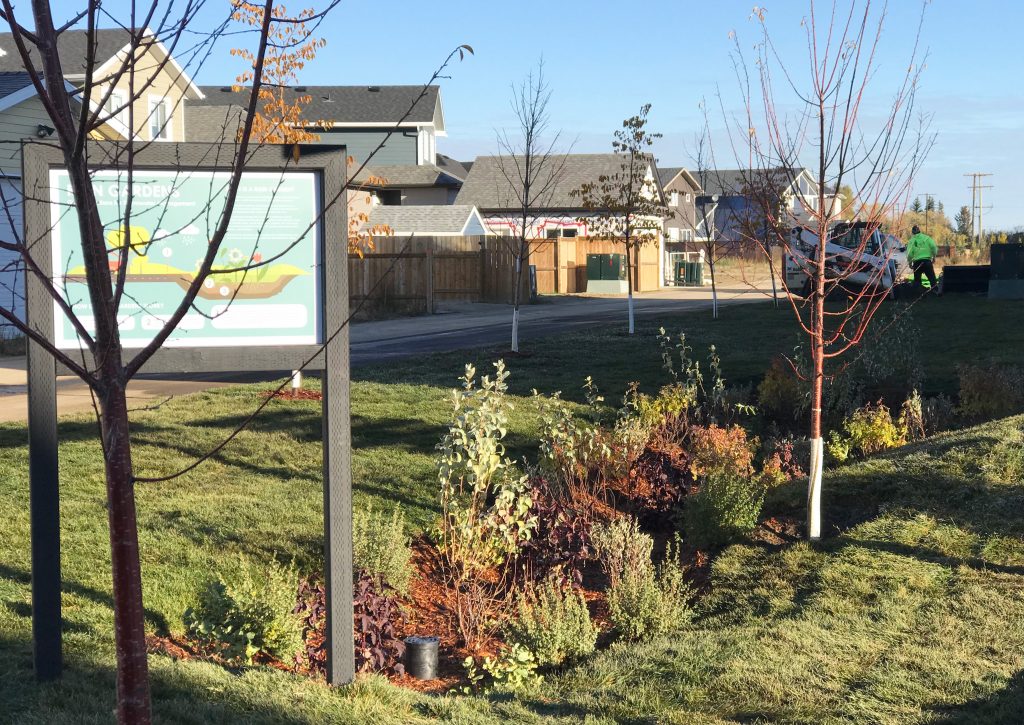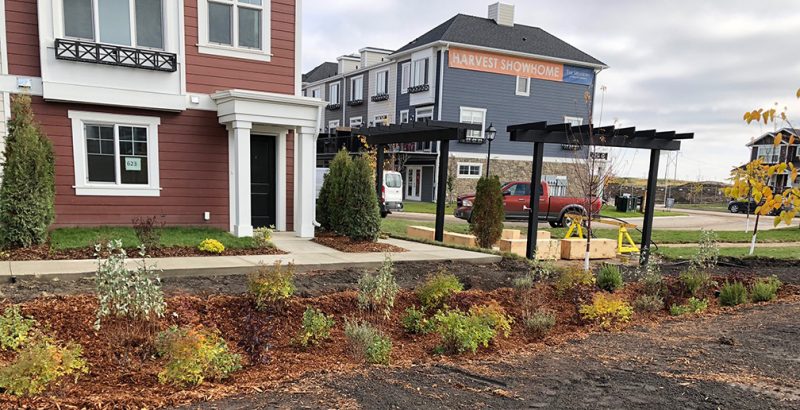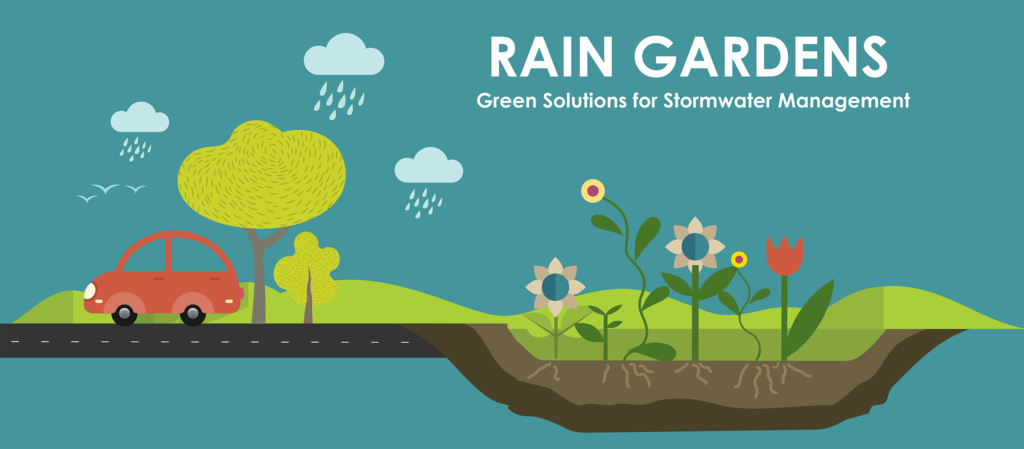The Meadows Rain Garden
June 19, 2019
How can communities help with sustainability? Did you know that rain gardens provide a green solution for storm water management? Are you curious about how rain gardens work?
We are very excited to install a rain garden along the perimeter of the Harvest Townhomes – the first of its kind in Saskatoon to be showcased prior to our future Solair community
Come visit us at our free community event – The Harvest Townhome Summer Street Market. Check out our rain garden and learn more about what else makes the Harvest Townhomes unique.
What is a Rain Garden?
Rain gardens are an environmentally friendly way to manage stormwater runoff on both public and private property.
The traditional method of dealing with stormwater is to collect it along the curbside to catch basins that then drain to an underground pipe system and into the river.
Rain gardens manage this runoff in a different way by creating shallow landscaped depressions that capture, clean, and absorb water runoff from roofs, parking lots and roads that contain pollutants such as oil, grease, pot waste, heavy metals, and fertilizer.
Without rain gardens, water would carry contaminants into storm drains and eventually into the Saskatchewan River.

How Do Rain Gardens Work?
- Rain water from lawns, pavement and other hard surfaces is directed into rain gardens.
- Native plants absorb the water while providing food and habitat for birds and pollinators.
- Pollutants in the rain water are filtered by a special soil mix in the upper layer of the garden. In typical rainfall events, rain gardens handle all the runoff, eliminating large scale storm pipes. This saves the cost of expansive underground infrastructure and helps protect our ecosystems and the river valley.

Thank you to everyone who contributed to showcasing our rain garden in The Meadows: MLD Landscaping LTD Saskatoon, Kerr Wood Leidal, University of Saskatchewan’s Dr. Terry Fonstad, Ph.D. – College of Engineering, Dr. Charles Maule, Ph.D. – Centre for Hydrology and Civil and Geological Engineering, Helen Shook – College of Agriculture and Bioresources.


